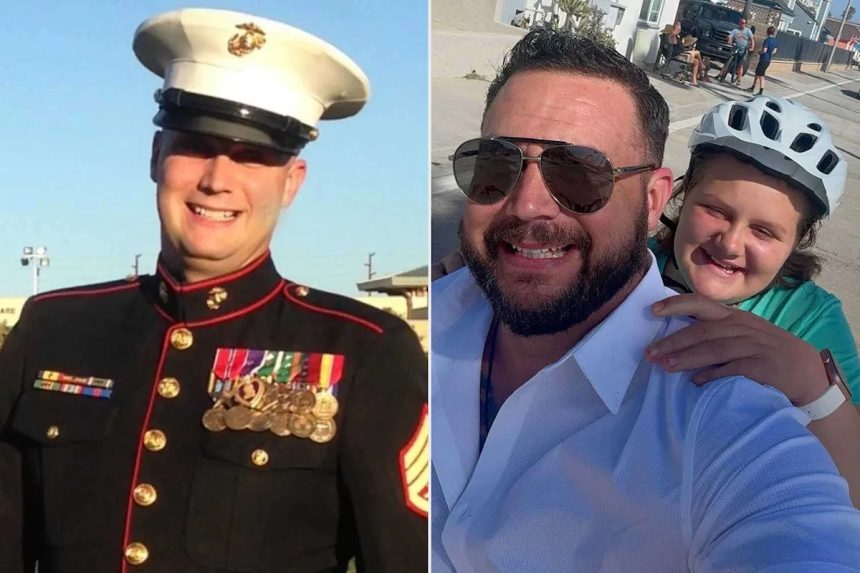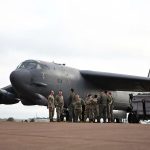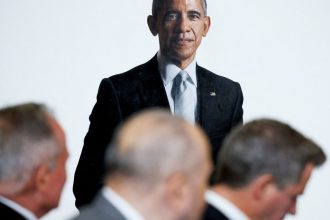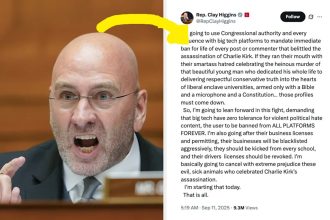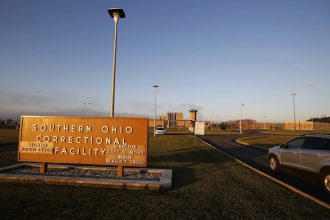NEED TO KNOW
-
“I’ll never forget it,” says retired Marine Justin Rettenberger, 45, of his first day in Operation Vigilant Resolve in Iraq, in 2004
-
Twenty-seven U.S. service members were killed in the April and May fighting and 107 died in November and December, along with thousands of civilians and insurgents
-
Rettenberger thinks about the battles of Fallujah every day, but not so much in the context of combat and kicking down doors
Editor’s note: For Veterans Day, PEOPLE is publishing a series of stories looking back at the service members and families affected by the two battles of Fallujah, in Iraq, in 2004 — combined, they marked some of the bloodiest fights in recent American history.
On March 31, 2004, Iraqi insurgents attacked a convoy of American contractors who were driving through the city of Fallujah. Four men were killed and pulled from their vehicles. Their bodies were mutilated, burned, dragged through the streets and hung from a bridge crossing the Euphrates River.
In the eyes of the United States, swift retribution was required, says Keil Gentry, a retired colonel, Fallujah veteran and director of the National Museum of the Marine Corps in Triangle, Va.
The response was to go after the insurgents in Fallujah, first in April and May during Operation Vigilant Resolve, and later in November and December during Operation Phantom Fury, which became the bloodiest battle of the Iraq War — vicious urban fighting as American-led forces cleared the city room by room, building by building and block by block.
Twenty-seven U.S. service members were killed in the April and May fighting and 107 died in November and December, along with thousands of civilians and insurgents.
“I’ll never forget it,” says retired Marine Justin Rettenberger, 45, of his first day in Vigilant Resolve. “It was a whole new battlefield that tested every ounce of training, discipline and courage we had.”
Rettenberger — “Rett” to his men — was with Echo Company, 2nd Battalion, 1st Marine Division, and just 24 years old when he led his squad of men still in their teens through the streets of the Iraqi city.
He says they were “family first” and likens his leadership to “a father-slash-big brother figure, a life coach and mentor.”
“It was key to be close to them and understand them, to know their weaknesses,” he says. “When things got tough, I needed to know who’s the first person I wanted going through that door and who’s the last person I wanted going through that door.”
Scott Peterson/Getty
The second battle of Fallujah, in 2004
Rettenberger had enlisted as a teenager himself, a move his dad, Kent, sanctioned. “If you want to do something, do the best,” he had said. “That’s the Marines.”
To Rettenberger, it sounded like the challenge he was seeking.
Preparing for Vigilant Resolve in early April, gazing off at Fallujah at dawn, Rettenberger’s mind replayed the scenes of the contractors and their debased bodies, he says now. “The moment fueled a deep sense of justice for our fellow Americans,” he says. “It was reality, and I was about to live it.”
Rettenberger participated in the battle and subsequent actions for months, usually seven days a week, many nights with no sleep. The unrelenting tension was a challenge.
“We would have big, big gunfights that would put you at a 10,” he says. “But even when you came down from it, you’re still at an 8.”
The men just didn’t realize it, he says, “because your life was constantly on the line.”
Even within the chaos of the battle, there would be days when the troops didn’t fire a shot and then days where everything seemed to happen, all at once. The day Rettenberger’s good friend Aaron Cole Austin died — April 26, 2004 — was one of those.
Never miss a story — sign up for PEOPLE’s free daily newsletter to stay up-to-date on the best of what PEOPLE has to offer, from celebrity news to compelling human interest stories.
“Hell of a guy, gave his life on a rooftop as insurgents were trying to jump from the rooftop and overrun our position,” Rettenberger recalls. “Aaron was firing his machine gun while throwing hand grenades at the enemy, and in a combat of 8 to 10 feet was shot multiple times.”
For his actions that day, Austin was posthumously awarded the Silver Star, the third-highest military decoration for valor in combat.
“These battles were defining moments for the Marines and the sailors and soldiers who served alongside them,” says Gentry, the National Museum of the Marine Corps director.
Rettenberger’s experiences in Iraq have shaped the way he regards the oft-used word “hero.”
“A true hero is not just any random person, it’s someone who sets aside their own well-being to protect and serve others,” he says. “That’s Aaron. He chose to put himself in harm’s way for others. That’s the essence of heroism.”

Courtesy Justin Rettenberger
Justin Rettenberger
It has been 21 years since the battles of Fallujah. Rettenberger served 10 more years in the Marine Corps, retiring in 2014 as a staff sergeant.
He settled in Southern California, earned an MBA and now works as a safety director for a logistics company. He enjoys fishing and is a self-described gym rat, participating in amateur physique competitions.
He also became a father to a daughter, Brielle, 12. “Best thing that ever happened to me,” he says.
He thinks about Fallujah every day, but not so much in the context of combat and kicking down doors.
“There’s a lot of life lessons that I took away from it,” he says, “and some of those are coming back to me even today.”
Like when things go sideways in the workplace and people are uncooperative. He keeps his eyes on the goal, staying calm and cool and refocusing. “But it’s a new day, and there’s [always] a new challenge in front of us,” he says.
Rettenbeger has been awarded several medals for heroism, including the Bronze Star with a “V” device, for valor, and two Purple Hearts.
He strives to be a humble person, he says. “I try to live by the core values I was taught early on in the Marine Corps. Walk a straight line, honor and encourage commitment — values reinforced by the Marines.”
Read the original article on People


